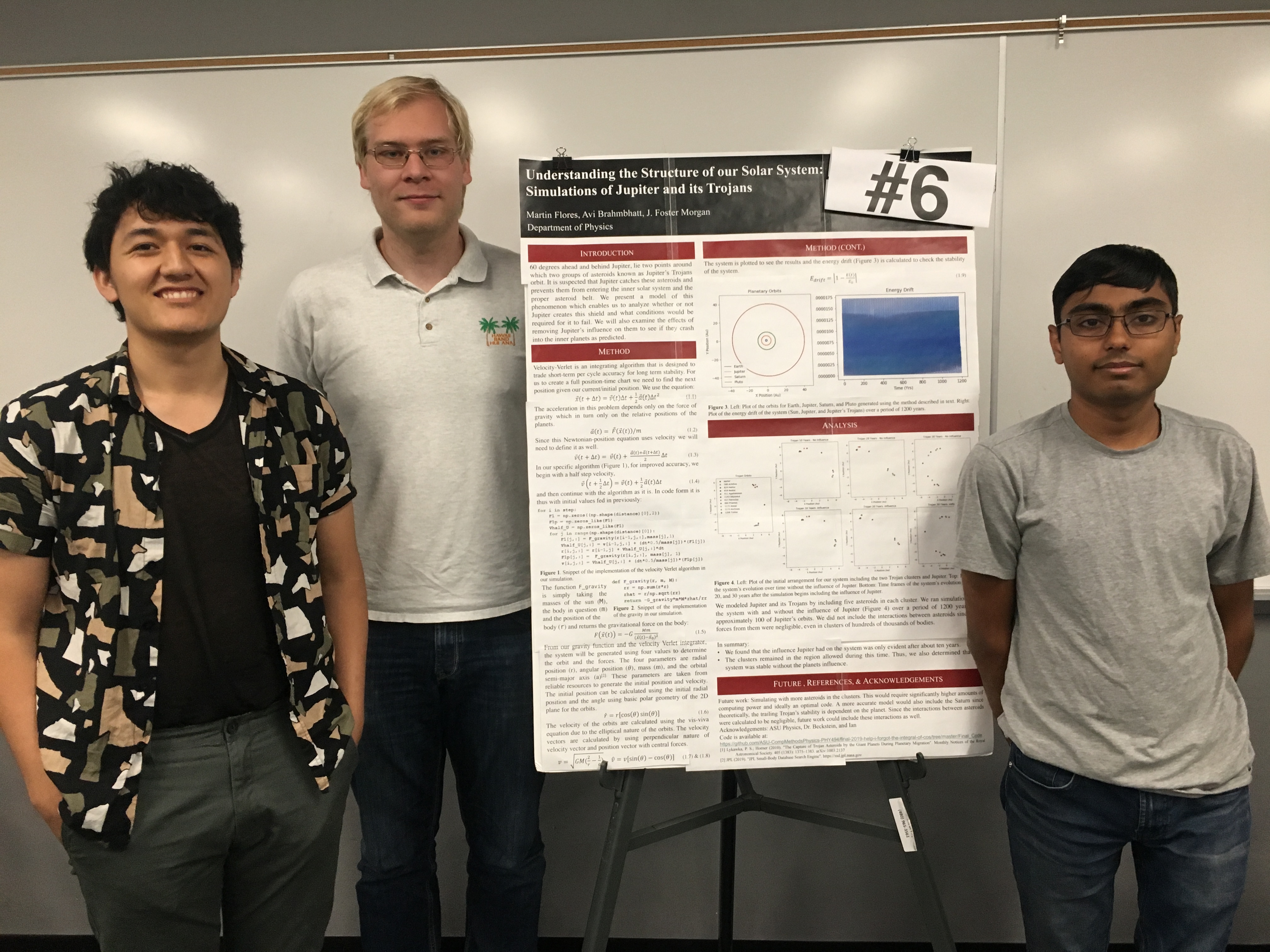Final Poster Symposium
02 May 2019Students worked on a Final Project in teams of two or three students and presented results as posters on 5/2/2019 in a conference-like setting, which we called the Final Symposium. Each student held a Q&A dicussion with the instructor in front of the poster.1
Seven teams looked at problems ranging from quantum mechanics to self-driving cars and planetary movements. Each team started with a proposal, defined goals, and used computational techniques learned during the semester to achieve their goals:
| # | title | team |
|---|---|---|
| 1 | Path Integral Monte Carlo | @ctpeterson @ssuharto |
| 2 | Simulation of a NaCl | @logol7 @abgardn2 @sllake2 |
| 3 | Benzene simulation | @rsexton @jgens @nawtrey |
| 4 | Simulating JJ Thompson's Cathode Ray Tube Experiment | @agardeck @SNOlson |
| 5 | Agent-based modeling of self-driving cars | @wang-albert @dmlewis9 @nathanelmains |
| 6 | Jupiter's Trojan Asteroids | @MysticAhuacatl @jfmorga1 @abrahmbhASU |
| 7 | Examining solar system dynamics | @ShaneBechtel @KendricKnorr @Agherna8 |
The proposals, code, and the posters are available in the public GitHub repositories. Further details, including abstracts and licensing information, is available in the Symposium Program (PDF).
The winner of the Poster Prize 2 was team #6 with the project Jupiter's Trojan Asteroids:

Notes
-
Each discussion was timed for 5 minutes and graded. Students were awarded a grade for their final that consisted of a grade for the whole project (collectively graded for the whole team) and the Q&A grade, which provides an individual component. ↩
-
The Poster Prize was awarded based on a vote by all participants. Winners received the recognition by their peers, and they also got lego Star Wars miniatures (but winning the prize had no influence on the grade). ↩